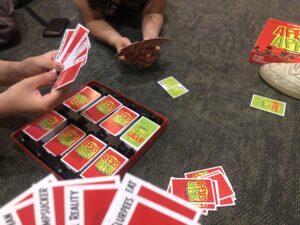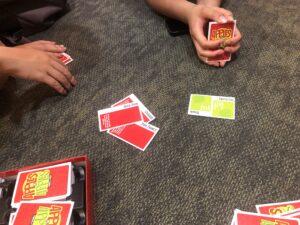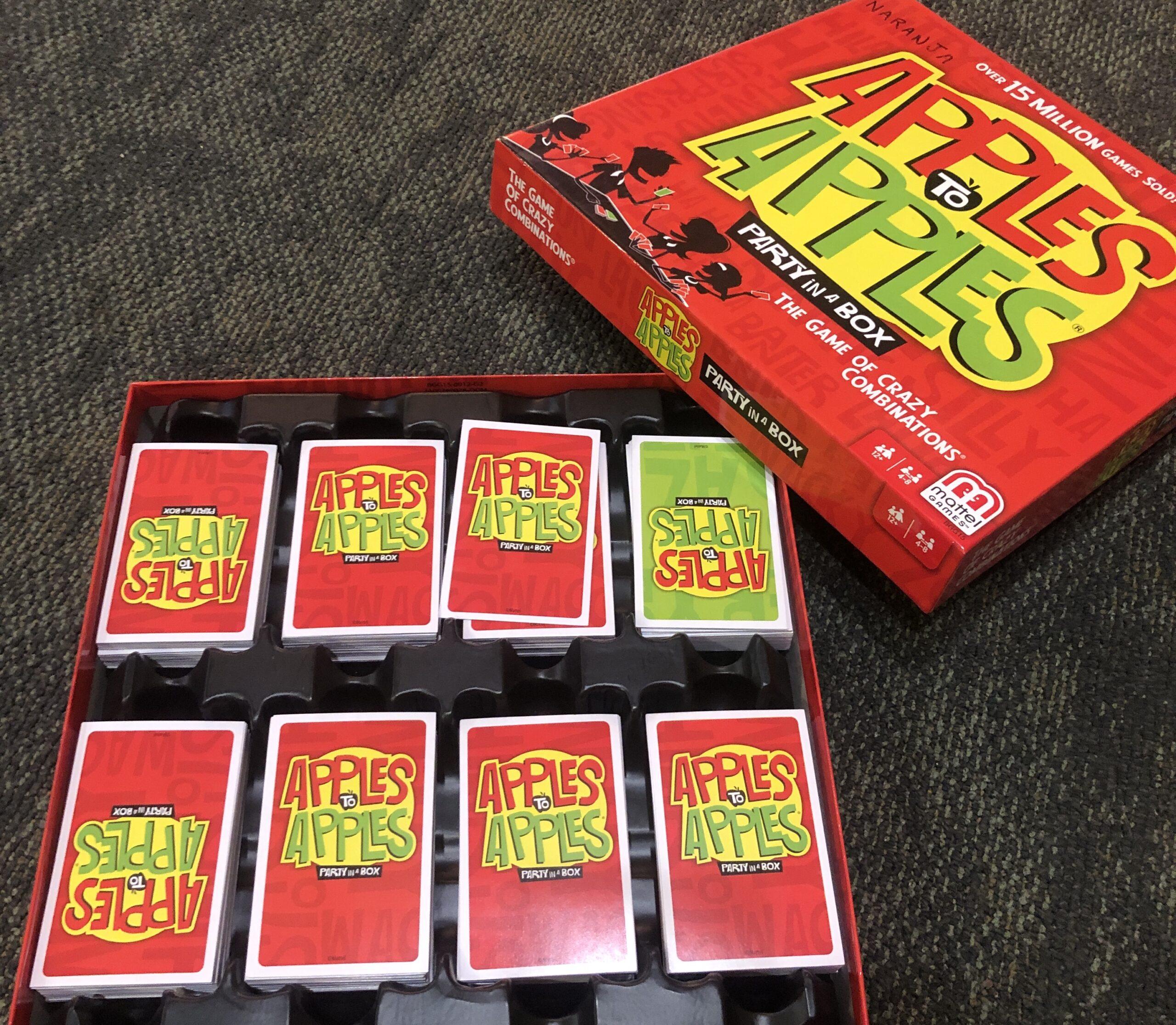This week, I played Apples to Apples, a physical card game invented by Matthew Kirby and originally published by Out of the Box Publishing, but now published by Mattel. The original set has a target audience of people ages twelve and up, including families, who perhaps understand pop culture (to a certain extent) and enjoy group/social interactions/discussions. There are additional expansion packs that have more specific audiences, such as Apples to Apples Junior, for ages nine and up.

Apples to Apples allows 4-8 players, and each round, one player is the “judge,” who takes a green card and chooses which word will be the focus of the round. All other players can choose from seven red cards in their hand to associate with the green card, and after all other players have chosen their card, the judge chooses one to “win.” The player relationships/roles are interesting because the role of the judge rotates around the circle so everyone has a chance to become judge, and it is advantageous for other players to know the judge well enough to have an idea of what they might choose. While there are technically win conditions based on the number of green cards players “win” that point toward a race-type objective, people might also just play the game because they enjoy the rounds and engaging with other people. It is similar to other judging games, especially Cards Against Humanity, but also Dixit and various Jackbox games, because each involve some version of “judge” role that inspects other players’ work in some way. Apples to Apples is different from Dixit and some Jackbox games such as Fibbage because the judge is one person, and other players cannot take action after playing their card, whereas Dixit and Fibbage involve other players trying to guess the “true” answer. Apples to Apples thus plays into personal preferences and social interactions rather than “true” facts, and it is different from Cards Against Humanity because it uses a simpler adjective—noun matching system with safer-for-week content. The adjective—noun model could allow for more player freedom, and content allows it to be playable at family game nights.

Apples to Apples intends to have fellowship as a type of fun, and perhaps sensation if we consider the laughter and joy that can come from the interactions. The main type of intended fun is still fellowship, and the game succeeds, as each round is heavily social when players choose their card based on the judge and see each other’s reactions as the red cards are revealed for the judge to choose from. For example, I heard many sounds of laughter, especially when (1) people were able to directly connect cards to the judge in some way, and (2) some cards that seemed quite random/unrelated to the prompt were revealed, such as “Moon: Over My Hammy.” However, this same mechanic of unexpected cards might also lead to a sort of fail, where if there is only one or a few people who do not understand the reference, they would be left out instead of being able to laugh with the entire group. A similar issue with unfamiliar cards arises when people receive a card they have no idea how to play and might end up randomly playing it in one round just to get a new card.

While the game attempts to address unfamiliarity issues by providing short descriptions on each of the red cards, I would further try to improve on the game by introducing some sort of mechanic that allows players to exchange cards they have no idea how to play, while still preventing excessive card-swapping. This would allow a more welcoming and open dynamic for all players to feel comfortable with playing the cards they have. I would also try to improve the game and address the earlier issues of potential unfamiliarity by perhaps adding a mechanic that allows groups to add their own red cards, such that all people in the group would understand the “inside joke” and the game can evolve over time instead of being a static set of cards.
Because Apples to Apples not quite a “getting to know you” game, it is very possible for players to show little to no vulnerability while playing. We could imagine a situation in which people who are willing could get vulnerable by playing a given card for a specific green card, but these situations might be rare and harder given the joyful nature and playful aesthetic of Apples to Apples.




